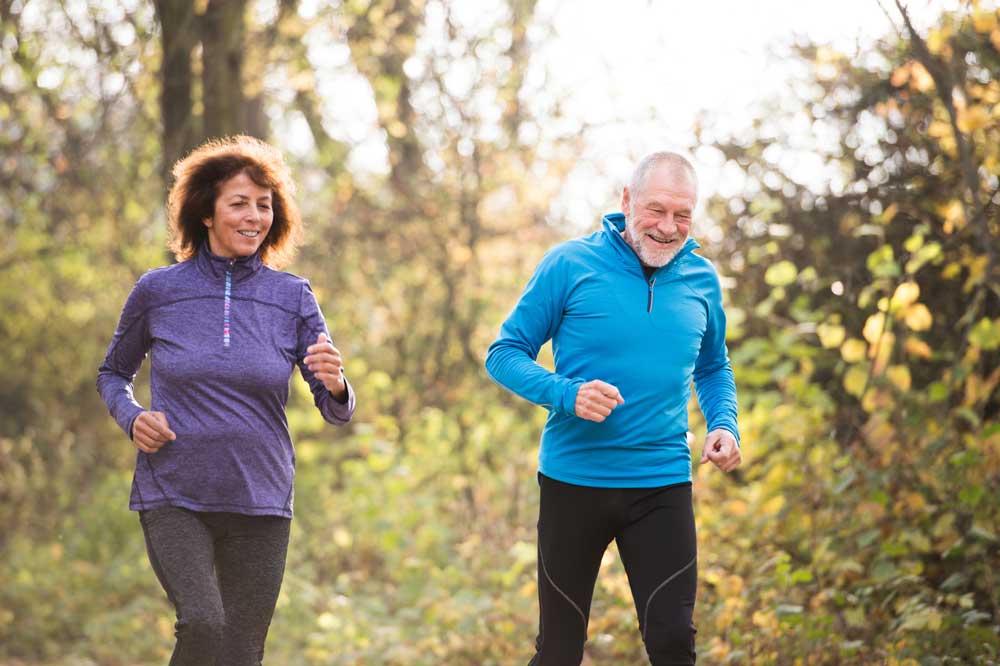Knee arthritis and similar health conditions can be especially aggravating during the winter months. If you feel that your own joint pain is exacerbated by the cold, you are actually backed up by recent scientific evidence.
A 2007 study from Tufts University found that those with arthritis report a noticeably greater sense of pain for every ten degrees the temperature declines.
However, it may not be the cold itself that is responsible for the greater levels of discomfort. The Cleveland Clinic noted that joints tend to become inflamed when there is a reduction in barometric pressure, generating pain as these skeletal connection points intrude on the space of the muscles and nerves in their vicinity. Sensitivity to air pressure for those with joint conditions such as knee arthritis is particularly apparent when there is an extreme shift, as it often occurs during the colder months.
Are you looking for relief in chilly weather?
Here is some advice to naturally alleviate your arthritis pain when it’s cold outside:
Tip #1 – Change your attire.
It’s important to wear gloves and a hat to retain your heat. Long underwear, tights, or leggings can also help keep the cold off your body.
Tip #2 – Err on the side of too many layers.
Arthritis patients often find it is helpful to start out the day with extra clothing, such as multiple pairs of gloves, and then remove these additional items as the weather warms.
fTip #3 – Resist the urge to sink into your sofa.
People often start to spend more time indoors during the wintertime – which in turn means that their lives become more sedentary. The joints do not respond well to that inactive lifestyle, so do everything you can to rise and stay mobile.
Tip #4 – Get plenty of vitamin D3.
A study featured in Pain Management in September 2015 revealed that sensitivity to the pain of arthritis is heightened when vitamin D levels are depleted. Deficiency in this vital nutrient also increases the likelihood of developing osteoporosis, noted Madeline R. Vann, MPH, in Everyday Health. “You’re less likely to get enough vitamin D from its natural source, sunlight, in the winter,” she said, so it’s critical to use a supplement or dietary fortification.
Tip #5 – Get some spice.
Spicy foods can serve as a natural tool to relieve pain, advised University of Pennsylvania rheumatologist Dr. Nora Sandorfi. Some topical treatments leverage capsaicin, which is found naturally in chili peppers. Creams that utilize this powerful compound counteract arthritis achiness because they make the area feel warmer, enhance circulation, and stimulate the release of a pain-relieving hormone.
Are you suffering with knee arthritis or any other joint condition?
At Health Star Clinic, we don’t just treat symptoms – we work at correcting the cause. See our New Patient Promises.


I suffer from severe knee and shoulder pain. I’ve had spinal blocking shots there several times and they work great. Had MRI’S on shoulders and nothing was torn. Just had severe tendinitis in both shoulders. MRI on right knee showed torn meniscus so had it scoped last year. Doctor said I had severe arthritis in both knees. Do you think you could help. Got steroid shots in both shoulders last year and it helped for a few months but now I can’t swing a club without a lot of pain.
Hi, James. We’ve treated several patients with severe arthritis in the knee and shoulder. One of our physicians would need to personally analyze your condition to determine if you can benefit from our treatments. Please call us at (334) 600-1159 to speak with our Patient Care Representative and schedule a consultation. We’re looking forward to hearing from you!